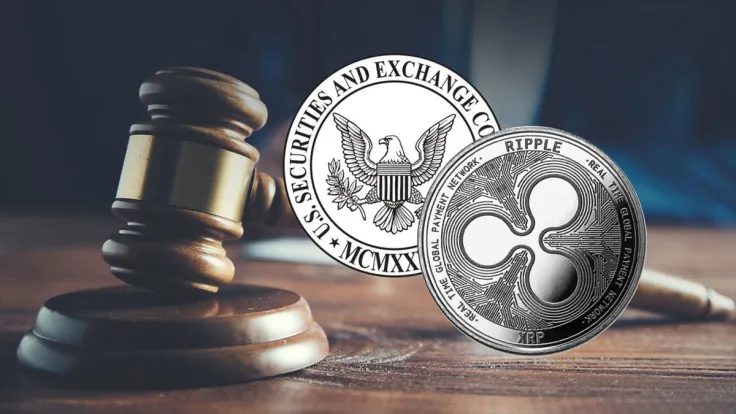
Disclaimer: The opinions expressed by our writers are their own and do not represent the views of U.Today. The financial and market information provided on U.Today is intended for informational purposes only. U.Today is not liable for any financial losses incurred while trading cryptocurrencies. Conduct your own research by contacting financial experts before making any investment decisions. We believe that all content is accurate as of the date of publication, but certain offers mentioned may no longer be available.
In recent tweets, crypto lawyer and XRP enthusiast Bill Morgan argued the basis of the ongoing Ripple lawsuit.
In December 2020, the SEC accused San Francisco-based Ripple Labs of selling unregistered securities in the form of XRP without adequate disclosure.
Many reasons. Firstly the evidence in the case is Ripple's sales are less than half of 1% of XRP sales. The SEC says all XRP sales are investment contracts. What offers does XRP register/1 https://t.co/5QBvICavmU?from=article-links
— bill morgan (@Belisarius2020) February 18, 2023
A Twitter user, Jay'V, believes that Ripple and other crypto projects should register their tokens with the SEC, citing the Stacks (STX) scenario.
In 2021, Hiro, formerly known as Blockstack, announced that its Stacks token (STX) was no longer a security and, as such, it would discontinue submitting annual reports to the SEC.
Hiro's declaration that STX is no longer a security may not be the same as what the SEC says, as no confirmation of the status of STX from the agency was available at the time of writing.
Overall, the decision to register tokens with any agency pales in comparison to the crucial question of who should oversee the cryptocurrency industry: the CFTC or the SEC.
Observers believe that the outcome of the landmark Ripple lawsuit might answer the lingering question of who should regulate the crypto space and provide regulatory clarity.
Ripple lawsuit outcome might answer question of cryptocurrency regulator
The Ripple ruling is the most well-known of a few carefully followed fintech lawsuits since it is thought that the stakes are higher.
The decision, which many anticipate will be made in the first half of 2023, may help determine the answer to who should regulate the crypto industry as well as the fate of various cryptocurrency investors and firms.
Whether or not cryptocurrencies should be regarded as securities, which would come under the Securities & Exchange Commission's purview, is at the heart of the dispute.
Gary Gensler, the chairman of the SEC, has been working to position his organization as the force that will control the cryptocurrency business. If the SEC wins, it will tighten its hold at a critical time when the regulator has stepped up its enforcement campaign.


 Dan Burgin
Dan Burgin Vladislav Sopov
Vladislav Sopov